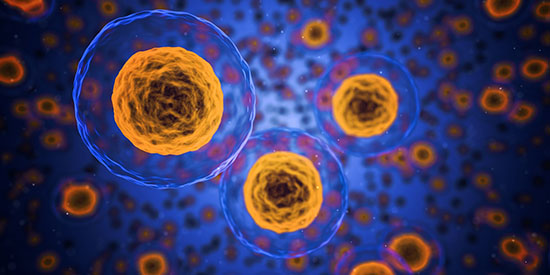Deakin researchers receive more than $4.9 million in NHMRC grant funding
Media releaseFive groups of Deakin University researchers will share in more than $4.9 million in funding from the National Health and Medical Research Council (NHMRC), thanks to its latest round of grants.
Researchers from the Centre for Innovation in Mental, Physical and Clinical Treatment, the Centre for Molecular and Medical Research, and the Centre for Population Health Research were successful in their applications, which will enable them to continue to make a difference in health outcomes ranging from tackling obesity to developing improved treatments for cancer and diabetes.
Deakin Deputy Vice-Chancellor, Research, Professor Peter Hodgson said the success reflected the University’s growing reputation for innovative health research.
"Much of our health research is rated well above world standards by the Australian Research Council's Excellence in Research Australia ratings," he said.
"This latest round of funding success demonstrates that our researchers are continuing to make an important difference in many areas of health."
NHMRC Project Grants have been awarded for the following projects:
Professor David Ashley, Centre for Molecular and Medical Research, School of Medicine
Research done recently across three separate Australian laboratories has shown great promise with a new anti-cancer drug LBH589 used for cancers in children and young adults. This project will start a clinical trial of LBH589 in children and young adult patients with cancer.
Associate Professor Sean McGee, Centre for Molecular and Medical Research, School of Medicine
Type 2 diabetes (T2D) is characterised by persistent elevated blood glucose levels. Altered liver metabolism is a key contributor to elevated blood glucose levels in T2D, through uncontrolled synthesis and release of glucose. This project will examine whether regulation of a metabolic enzyme called GAPDH by a process termed acetylation, contributes to normal liver glucose metabolism. This project will also assess whether altered GAPDH acetylation contributes to hyperglycaemia in T2D.
Associate Professor Joanne Williams, Centre for Population Health Research, School of Health and Social Development
This study will test an individually tailored body image and weight management program. The program is delivered online to students in early secondary school and builds on our partnership with Stanford University adapting internet programs for use in Australia. Staying Fit Australia gives individual guidance about concerns and attitudes to weight and shape, nutrition and physical activity. The program aims to prevent obesity and promote healthy nutrition and physical activity in all adolescents.
Professor Johnson Mak, Centre for Molecular and Medical Research, School of Medicine
The work of Professor Mak and his team reveals a previous unknown step in HIV known as pre-entry priming. These discoveries challenge our current dogma of how viruses function, and imply this pre-entry priming process is a built in mechanism for HIV to protect itself. This project will redefine our understanding of HIV and explore novel HIV vaccine design through these discoveries.
Dr Olivia Dean, Centre for Innovation in Mental and Physical Health and Clinical Treatment, School of Medicine
Bipolar disorder, especially during episodes of depression, can be highly debilitating. There is scientific evidence now directing research towards new targets to produce new therapies for bipolar depression. Dr Dean's project aims to use an entirely new agent made from the husk of the mangosteen fruit (mangosteen pericarp). Mangosteen pericarp has properties that may assist in reducing symptoms for those with bipolar depression, when taken in addition to usual treatment.
Share this story

